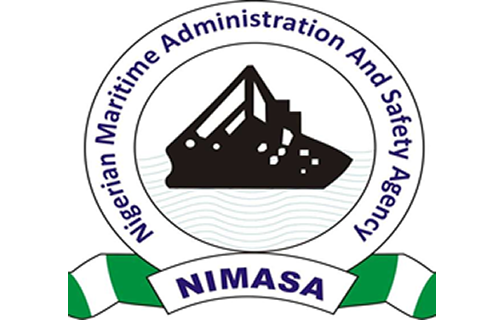Maritime operators in Nigeria have raised alarms regarding the adverse effects of the federal government’s ineffective enforcement of key maritime laws, notably the Cabotage Act of 2003 and the Nigerian Maritime Administration and Safety Agency (NIMASA) Act of 2007, which were designed to bolster the interests of national carriers. The lack of stringent oversight and implementation of these laws has significantly discouraged indigenous shipping companies from engaging in the transportation of crude oil and non-oil imports and exports. During a workshop in Lagos organized by NIMASA in collaboration with 4E Best Solution Limited, retired NIMASA Director of Shipping Development, Mr. Anthony Ogadi, underscored that while these legal frameworks exist, their operationalization remains lacking, thereby hindering the growth and survival of local shipping operators, and leaving the sector vulnerable to foreign dominance.
Mr. Ogadi emphasized that specific provisions within the maritime Acts grant national carriers exclusive rights to transport cargo for various governmental levels, yet the ineffective implementation of these provisions has made it difficult for local companies to compete on an equal footing. He lamented the erosion of Nigeria’s rights and influence in the maritime sector and highlighted the historical context, where Nigeria previously had a robust presence in international shipping forums. Through conferences such as the Far East-West African Conference and others, Nigeria used to hold an equitable stake in cargo allocations, sharing responsibilities with foreign carriers. Unfortunately, this competitive advantage has diminished over time, primarily due to mismanagement, corruption, and favoritism that have favored foreign entities over domestic operators.
Adding to this, Ogadi’s insights reflected a significant shift in operational dynamics within the shipping sector. He drew attention to the monitoring processes that once ensured equitable cargo distribution, referencing the oversight roles played by institutions like the Central Bank of Nigeria. Today’s realities starkly contrast that bygone era of robust oversight, leading to agreements among foreign carriers that usurp opportunities from local firms. The cumulative effect of these challenges has been a decreased competitive stance for Nigerian shipping companies, exacerbating a trend of foreign dominance in the sector.
Dr. Bolaji Akinola, the CEO of Ships and Ports Limited, echoed the concerns raised by Ogadi, stressing the pitiful state of Nigeria’s indigenous shipping industry. Despite the presence of more than 5,000 ships docking at Nigerian ports annually, not a single vessel is owned by a Nigerian company. Akinola painted a grim picture of Nigeria as a mere spectator in its shipping landscape, where foreign interests reap the benefits of lucrative trade routes while Nigeria remains devoid of any substantial stake in logistics and transportation. This negligence has resulted in local operators suffering in an economy that appears to favor foreign enterprises, thereby complicating Nigeria’s potential for maritime advancement.
The plight of local shipping is underscored by the historical reference to the Nigerian National Shipping Line (NNSL), which was once a point of national pride and was envisioned to enhance Nigeria’s economic independence and stature in global trade. Established shortly after independence in 1960, the NNSL was intended to serve as a national carrier and catalyst for the country’s maritime aspirations. However, the collapse of this once-thriving institution epitomizes decades of negligence, poor governance, and mismanagement that have beset Nigeria’s maritime sector, leaving a void that has allowed foreign entities to dominate maritime activities.
In summary, the combination of ineffective enforcement of maritime legislation, mismanagement, corruption, and a lack of support for indigenous shipping has left Nigeria’s maritime industry in a precarious state. The voices of industry leaders like Ogadi and Akinola demonstrate an urgent call for a renewed commitment to strengthening local operators and reviving the nation’s maritime capabilities. This will not only enhance Nigeria’s competitive standing in international shipping but also secure its economic interests in a sector that is critical to the country’s growth and development. If effective measures are not taken promptly, the risks of continued foreign dominance and the diminishing influence of Nigerian firms within their own waters will persist, stifling an industry ripe for revival.














